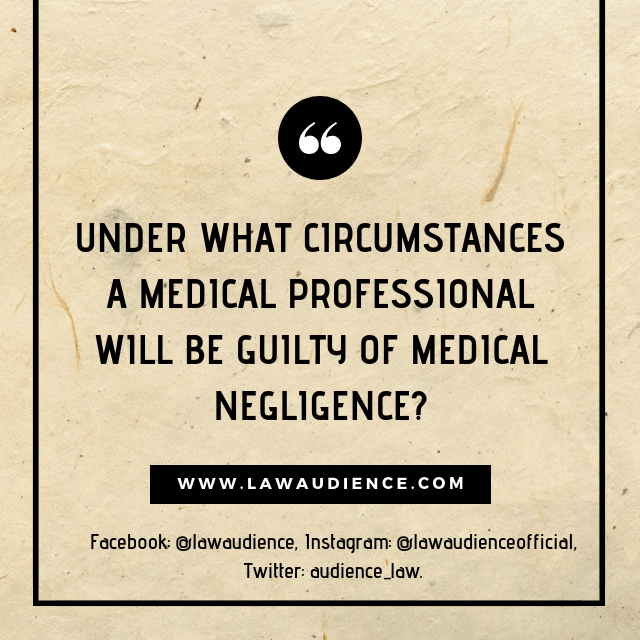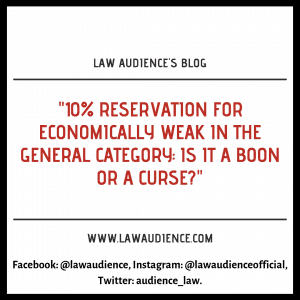Under What Circumstances A Medical Professional Will Be Guilty of Medical Negligence?
The Hon’ble Supreme Court of India in Kusum Sharma & Ors. v. Batra Hospital & Medical Research Centre & Ors[1], laid down certain principles for the same namely: In Para No. 94: On scrutiny of the leading cases of medical negligence both in our country and other countries especially United Kingdom, some basic principles emerge in dealing with the cases of medical negligence. While deciding whether the medical professional is guilty of medical negligence following well known principles must be kept in view[2]:
- Negligence is the breach of a duty exercised by omission to do something which a reasonable man, guided by those considerations which ordinarily regulate the conduct of human affairs, would do, or doing something which a prudent and reasonable man would not do.
- Negligence is an essential ingredient of the offence. The negligence to be established by the prosecution must be culpable or gross and not the negligence merely based upon an error of judgment.
- The medical professional is expected to bring a reasonable degree of skill and knowledge and must exercise a reasonable degree of care. Neither the very highest nor a very low degree of care and competence judged in the light of the particular circumstances of each case is what the law requires.
- A medical practitioner would be liable only where his conduct fell below that of the standards of a reasonably competent practitioner in his field.
- In the realm of diagnosis and treatment there is scope for genuine difference of opinion and one professional doctor is clearly not negligent merely because his conclusion differs from that of other professional doctor.
- The medical professional is often called upon to adopt a procedure which involves higher element of risk, but which he honestly believes as providing greater chances of success for the patient rather than a procedure involving lesser risk but higher chances of failure. Just because a professional looking to the gravity of illness has taken higher element of risk to redeem the patient out of his/her suffering which did not yield the desired result may not amount to negligence.
- Negligence cannot be attributed to a doctor so long as he performs his duties with reasonable skill and competence. Merely because the doctor chooses one course of action in preference to the other one available, he would not be liable if the course of action chosen by him was acceptable to the medical profession.
- It would not be conducive to the efficiency of the medical profession if no Doctor could administer medicine without a halter round his neck.
- It is our bounden duty and obligation of the civil society to ensure that the medical professionals are not unnecessary harassed or humiliated so that they can perform their professional duties without fear and apprehension.
- The medical practitioners at times also have to be saved from such a class of complainants who use criminal process as a tool for pressurizing the medical professionals/hospitals particularly private hospitals or clinics for extracting uncalled for compensation. Such malicious proceedings deserve to be discarded against the medical practitioners.
- The medical professionals are entitled to get protection so long as they perform their duties with reasonable skill and competence and in the interest of the patients. The interest and welfare of the patients have to be paramount for the medical professionals.
Post Views: 4,273



